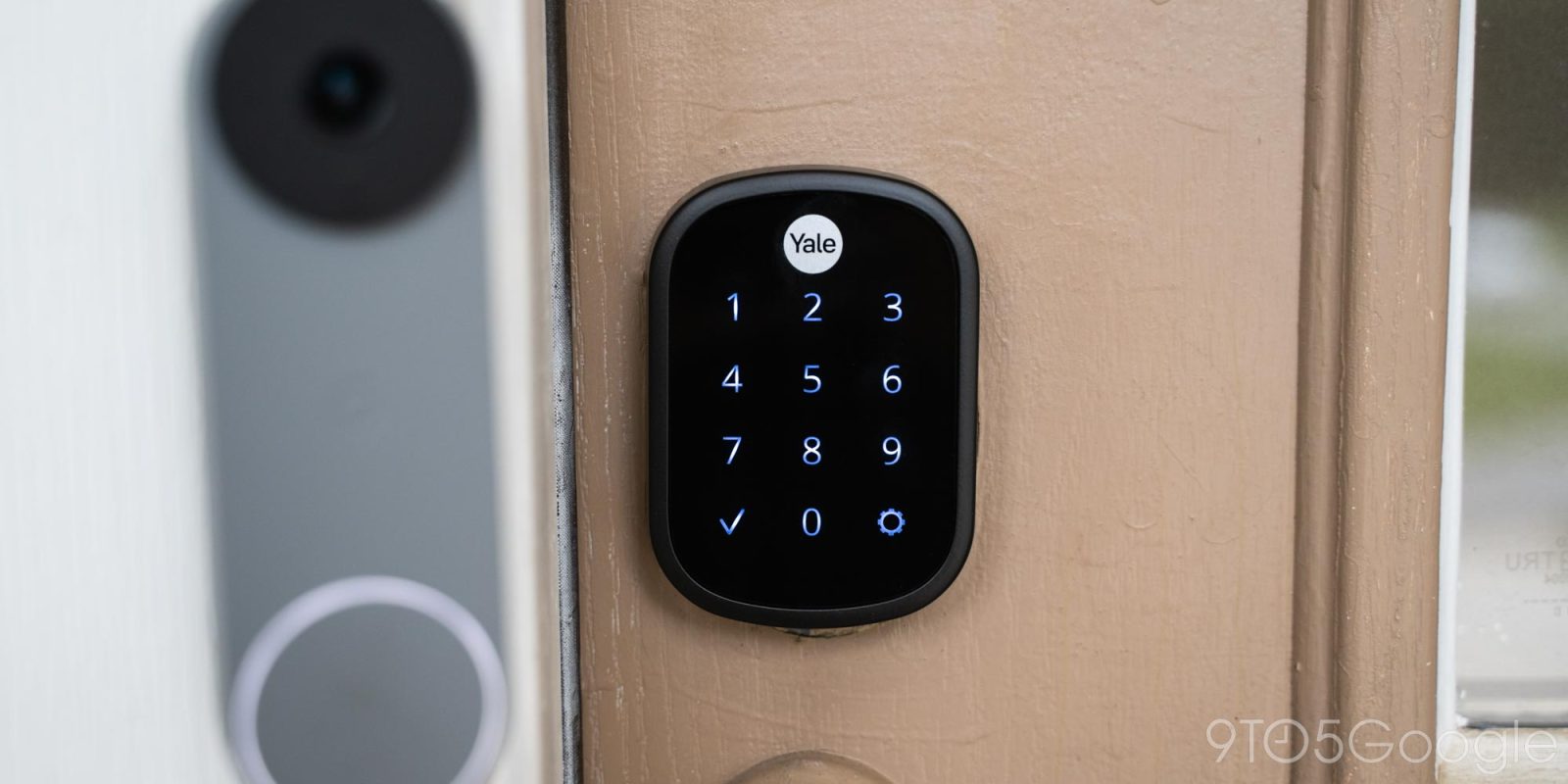
The Nest x Yale lock first made its debut in 2018 and, five years later, it’s effectively been ignored for a while in Google’s updated smart home ecosystem. Without a proper sequel on the horizon, we’ve been looking at Yale’s new Matter-enabled smart lock which should be a good stand-in for Google’s overdue sequel, but instead, shows Matter’s limits yet again.
Yale Assure Lock SL is one of the first Matter-enabled smart locks for a door, and it rests on a pretty simple pitch. Instead of installing a lock on your door and needing a specific app to control it, why not just have one that pairs directly to your smart home app of choice?
It’s a good pitch, and a world I certainly want to live in, but the idealized pitch of Matter holds it back.
But, before we get into all of that, let’s just start by talking about the hardware and setup.
The Yale Assure Lock SL is a lot like any other smart lock you’ve seen from Yale, including the aforementioned collaboration with Nest. There’s a keypad on the outside of your home that can lock and unlock the dead bolt with a code, with all of its hardware housed on the inside of the door. Just like the Nest x Yale, this lock fulfills that key-less life dream, and I love it for that. It also works super well, and is pretty intuitive. Tapping the Yale logo lights up the keypad, which is otherwise blank, and you simply type in your code and unlock. It’s simple enough for anyone to understand, and the touchpad is big enough to make it easy to tap each button.
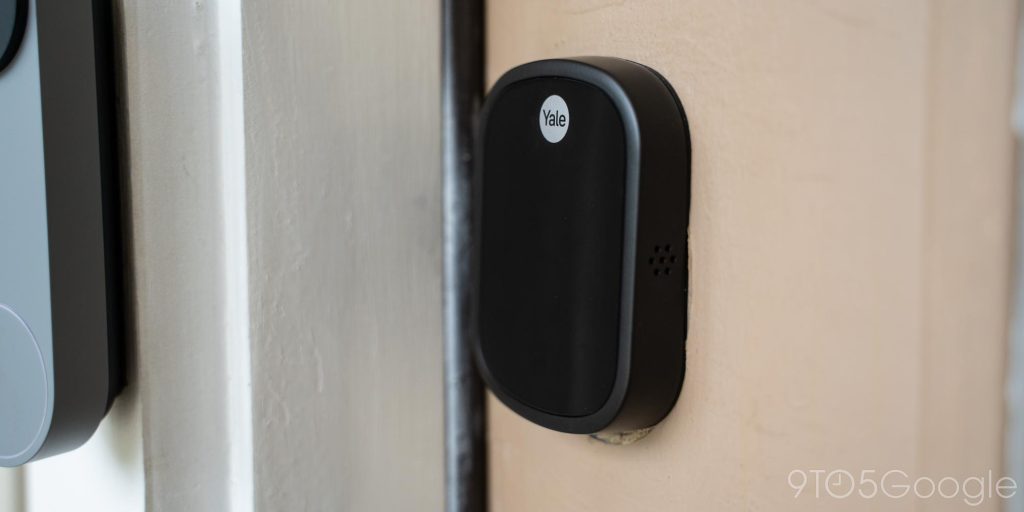
Installation of the lock is also super easy, especially if you’re coming from a previous Yale lock. All you’ll need is a screwdriver and the directions, which are readily available via a QR code even if you’re not using the Yale app to operate the door. That’s something I was worried about with a Matter-centric setup, but it worked wonderfully. Moving from my Nest x Yale lock to the Assure SL took about 45 minutes from start to finish, including both the hardware and software actions. For those less experienced in swapping a door lock or if you’re replacing a much older lock (especially one that’s a bit “sticky” on the deadbolt), I could see it taking longer, but this is a relatively simple process overall.
The only part of the whole setup that I’d like to call out, as it confused me, is setting up Matter itself. The Yale Assure Lock SL technically doesn’t have Matter built-in. Rather, you’ll use a module that’s included in the box with the bundled version of the lock, and slots into the lock during installation. During setup, though, you have to turn on the Matter functionality, which is a little confusing at first. Yale’s directions explain it, I just recommend taking your time with each step and don’t rush it.
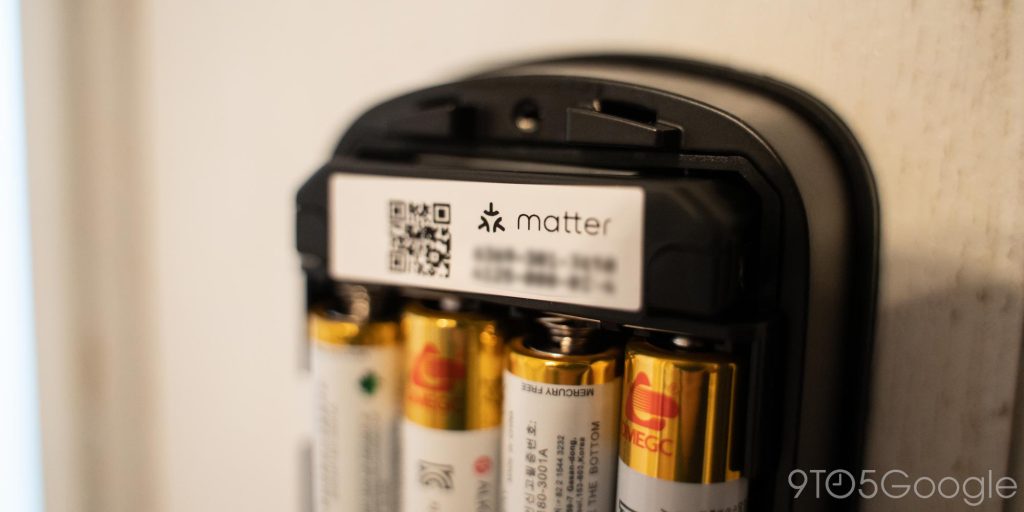
Adding the lock to the Google Home app was a breeze once Matter was turned on. It showed up immediately on my Pixel Fold and only took about a minute to enroll. I also appreciate that, if you do something wrong, the Google Home app will link out to Yale’s own directions, which is a really nice touch.
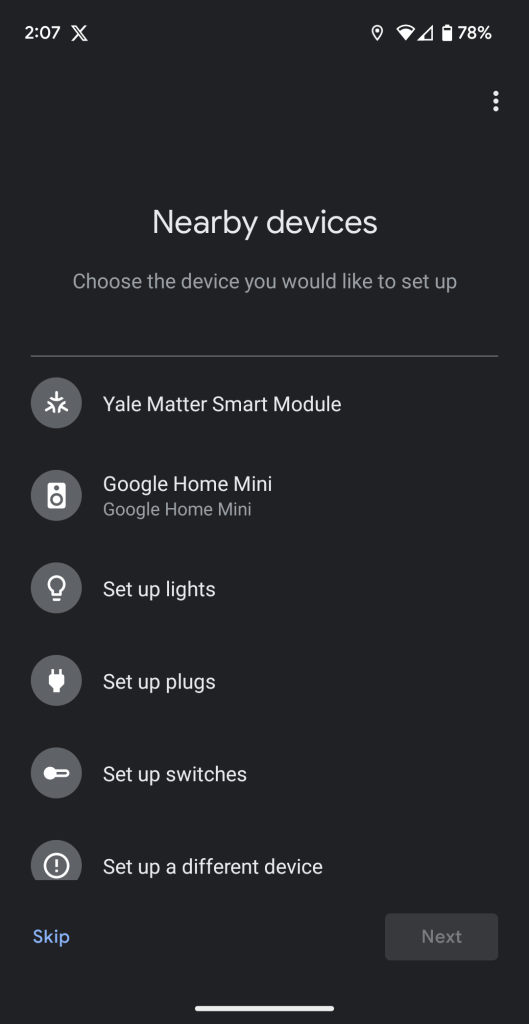
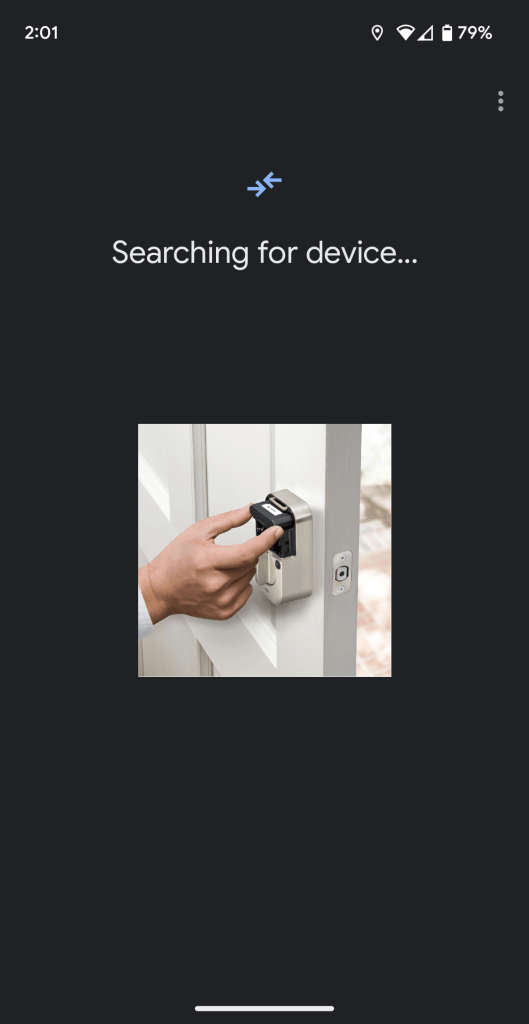
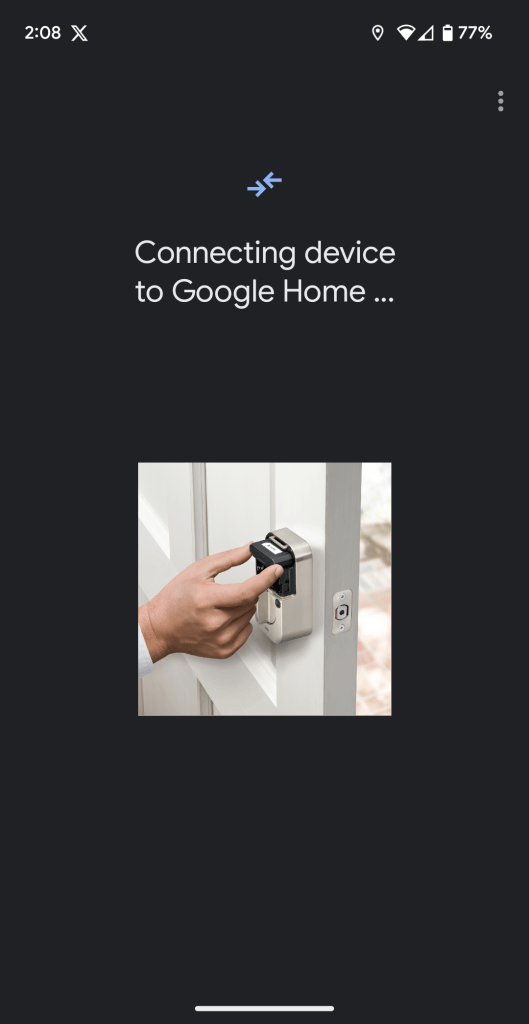
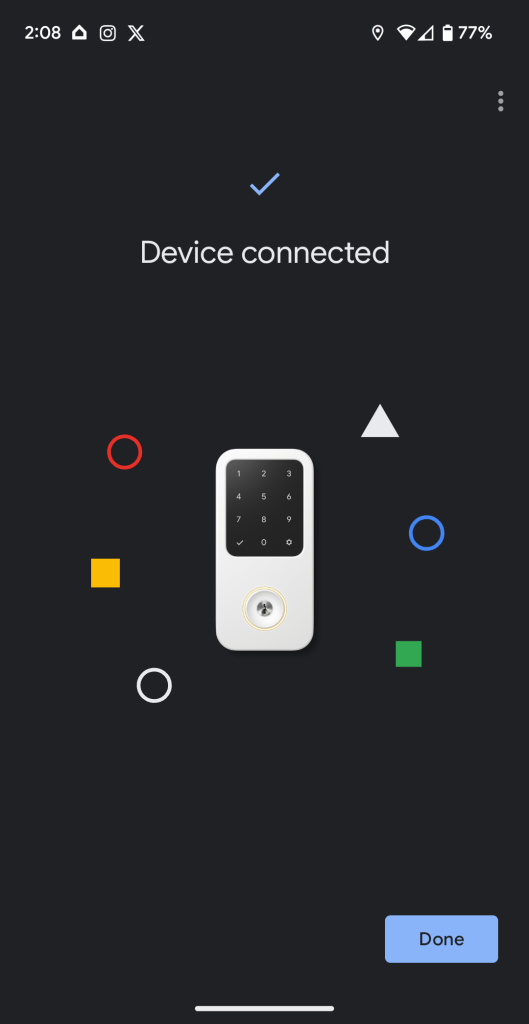
Once paired, Matter took over to connect the Yale Assure Lock SL to the rest of my smart home, all through my existing Nest Wifi Pro. You’ll need that, a Nest Hub (2nd Gen), or a Nest Hub Max out of Google’s hardware lineup to use the lock, as it connects via Thread. Several Apple devices, most of Amazon’s Eero routers, and some SmartThings hardware can also be used for this.
Response time via the Nest Wifi Pro’s connection was really fast, arguably more so than the Nest x Yale lock was, and the connection was super reliable, with it never failing in the times I locked and unlocked the door via the Google Home app. Notably, you’ll need to enter your PIN in the app every time you want to lock or unlock the door, and this also applies to voice controls in Google Assistant, which is a little frustrating, but good on the security side of things. The only time I really felt it was a problem was for automation, as you can’t just have a Google Home routine lock the door without entering a PIN. Again, good for security, but I wish I was given the choice here.
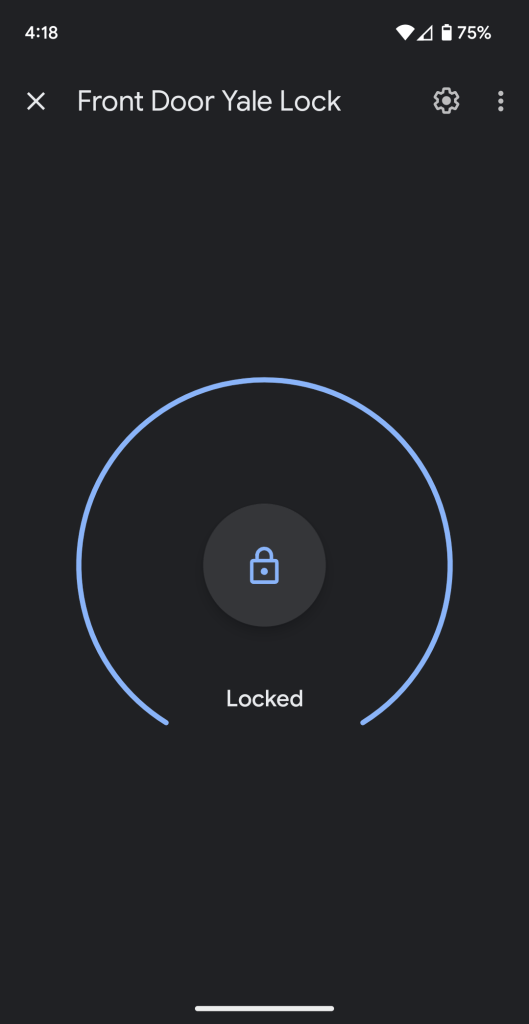
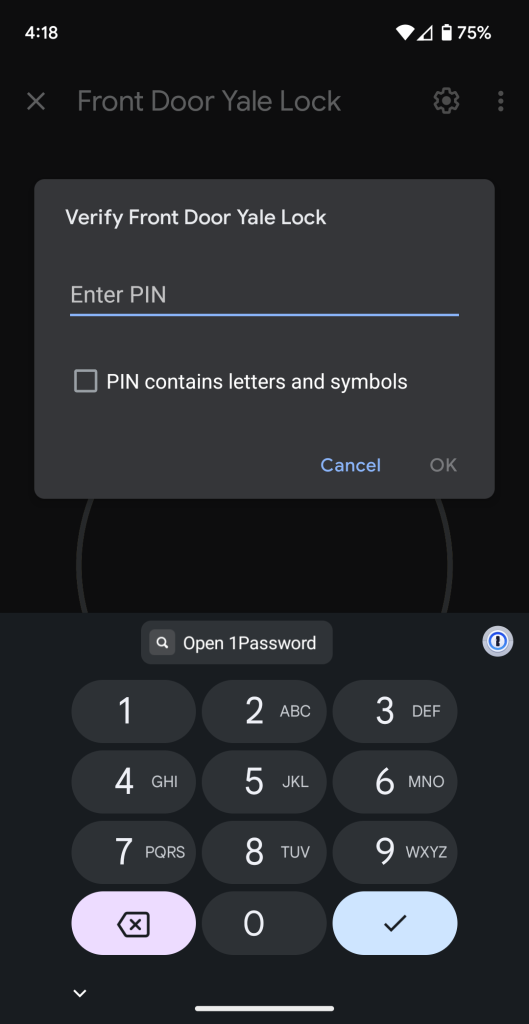
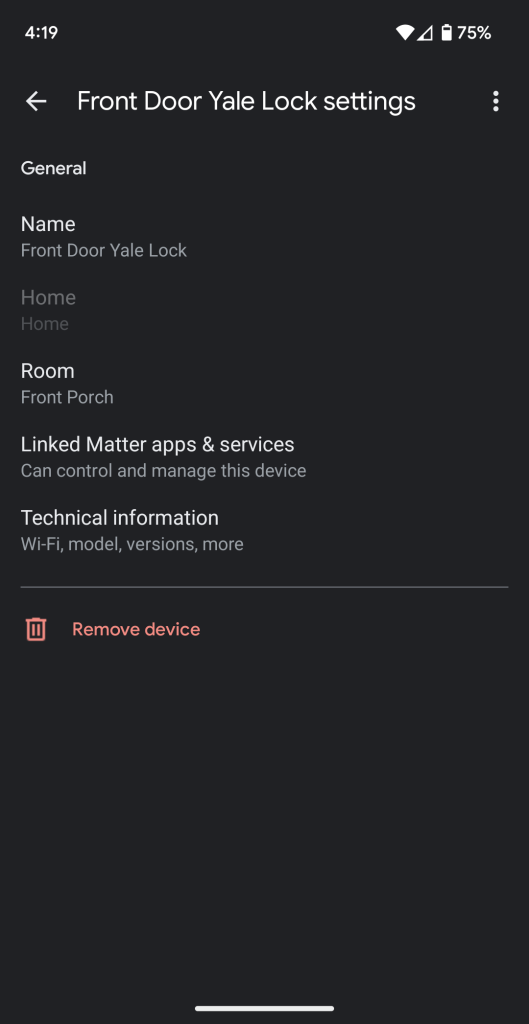
And, if that’s all you need, I think this experience is a good one, but I also don’t think most folks are buying a smart lock just for the ability to unlock and lock it via an app or voice assistant.
The other big appeal of a smart lock is the ability to set auto-lock timers, something Yale advertises right on the lock’s website. But, through the Google Home app, you can’t access that option at all. In fact, you can’t adjust any settings through the app. You can’t adjust the master code, add codes for guests, or really anything else. You can just lock and unlock. You can set up auto-lock on the lock itself, which works well enough, but I can’t even count the number of times I’ve turned that feature on or off on the fly on the Nest x Yale lock when I’ve had people working on my house, or when moving things in or out of the house.
The biggest deal-breaker for me in this is the inability to set up guest codes, which is a tremendous help when family and friends come by, or someone stays to watch our dogs. Instead of giving them our code, I can set one up that they pick and are more likely to remember, and also turn that code off if needed.
But that’s not Yale’s fault by any means. It’s just a limitation of Matter, and one we’ve seen time and time again. Whether it’s a smart light or anything else, adding a device through Matter instead of a dedicated app typically means sacrificing granular controls for the sake of simple setup and day-to-day functionality. And by no means does anyone have to feel bad for making that choice. The fact that this lock (at least in theory) should work without internet for locking/unlocking, and that I don’t have to have another app installed to control it is incredibly appealing. Thanks to Matter, I can also use it in the SmartThings, Amazon Alexa, or Apple Home apps with ease, which is just great.
Normally, this is where I’d add that you can just use the manufacturer’s app to unlock these features, but that’s actually not the case if you buy Yale’s Matter lock. It will only work via Matter, which is a bit odd, and perhaps the single biggest hurdle I’d have in recommending it to someone. That said, with much of the core functionality working without even a Matter connection, it’s at least functional if the needed Thread device in your home goes down.
For me, this won’t replace my Nest x Yale lock on the long-term, but I think this sets smart locks built on Matter in a good starting foundation. I just hope that, in the future, we get more controls and features via the standard.
The Yale Assure Lock SL with Matter is available now for $229.
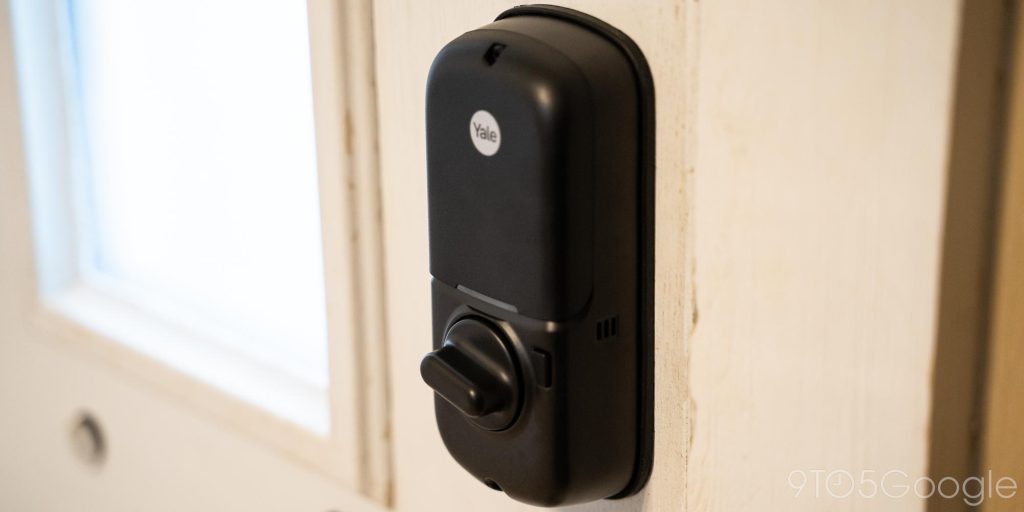
More on Smart Home:
- Google Home Essentials: Yale’s Assistant-connected delivery box deters porch pirates
- New JBL Authentics 200, 300, and 500 speakers have simultaneous Google Assistant and Alexa
- Review: Yeedi Cube is an all-in-one vacuum + mop that saves on space
Update: Alexa is now supported, the review has been updated to reflect this.
FTC: We use income earning auto affiliate links. More.



Comments